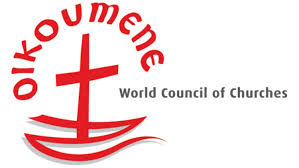By CMC News
(Source: CNW)
CYPRUS, CMC – The Executive Committee of the World Council of Churches (WCC) has urged all member churches to pray and show Christian solidarity with the people of Haiti. This call came after the committee’s recent meeting in Cyprus, where the leaders pledged to pray for “God’s compassion for the people of this troubled land” and for an answer to their cries.
The WCC highlighted Haiti’s difficult history, marked by the legacy of colonialism, slavery, and multiple U.S. occupations. However, it also acknowledged Haiti’s significant role as a beacon of freedom. Haiti was the first sovereign state in the Caribbean, the second republic in the Americas, the first country in the Americas to officially abolish slavery, and the only nation in history founded by a revolt of enslaved people. The statement reflects the WCC’s deep concern for the current challenges faced by Haiti and its enduring resilience throughout history.
“However, its people have been ground down by the imposition of oppressive and illegitimate reparations to France, and have suffered through generations of political instability, war, international isolation, and the brutal dictatorial rule of the Duvalier family (1957–1986).”
The Executive Committee called on WCC member churches, ecumenical and interfaith partners worldwide – and especially in the United States of America and France – to “offer persistent and fervent prayers for Haiti, especially for those affected by violence, displacement, and systemic injustice; help raise awareness of the situation in Haiti, which is too often forgotten or ignored in advocacy efforts urging their governments to take constructive actions to address Haiti’s humanitarian and political crises, including sustained support for peacebuilding efforts.”
The WCC also urged the secretary general to consult with Haitian churches, ACT Alliance, specialised ministries, and other relevant partners to discern and implement effective ways for the WCC to support the ministry of the churches in this context and to express solidarity with the Haitian people.
The world body also called on the international community to “provide robust and coordinated support for Haiti, including through increased personnel and funding for the Multinational Security Support Mission and its transformation into a UN peacekeeping mission – as requested by the Haitian authorities – and further efforts to stabilise governance, rebuild institutions, and address humanitarian needs.
Concerning humanitarian assistance, the WCC is encouraging ecumenical part-ners, specialised ministries, and UN system entities to aid those affected by prioritising food security, education, medical care, and protection for vulnerable populations, especially women and children.
“The Haitian peoples’ suffering has been compounded by recurring natural disasters and outbreaks of disease. In 2024, Haiti has faced severe economic and political crises, escalating gang violence, and the collapse of its government and its institutional infrastructure, resulting in the breakdown of social cohesion.”
The WCC noted that extreme violence perpetrated by armed gangs is extending to more parts of the country as the Government’s presence continues to erode.
“The increasing violence exacerbates the persistent lack of essential basic services. Hospitals and schools operate intermittently at best. People are afraid to go to work, individuals in need of medical care avoid seeking treatment and parents are reluctant to send their children to school, fearing stray bullets or kidnappings.”
It is estimated that over one million children are out of school, heightening the risk of gang recruitment for half a million children who reside in gang-controlled areas.
“Hospitals and public institutions are becoming targets, as are the professionals who staff them. Many are displaced and are leaving the country. And as so often, women bear the disproportionate burden of the surge in violence in Haiti. Rape cases increased by 49 per cent from January to August 2023, compared to the same period in 2022,” the WCC said.

